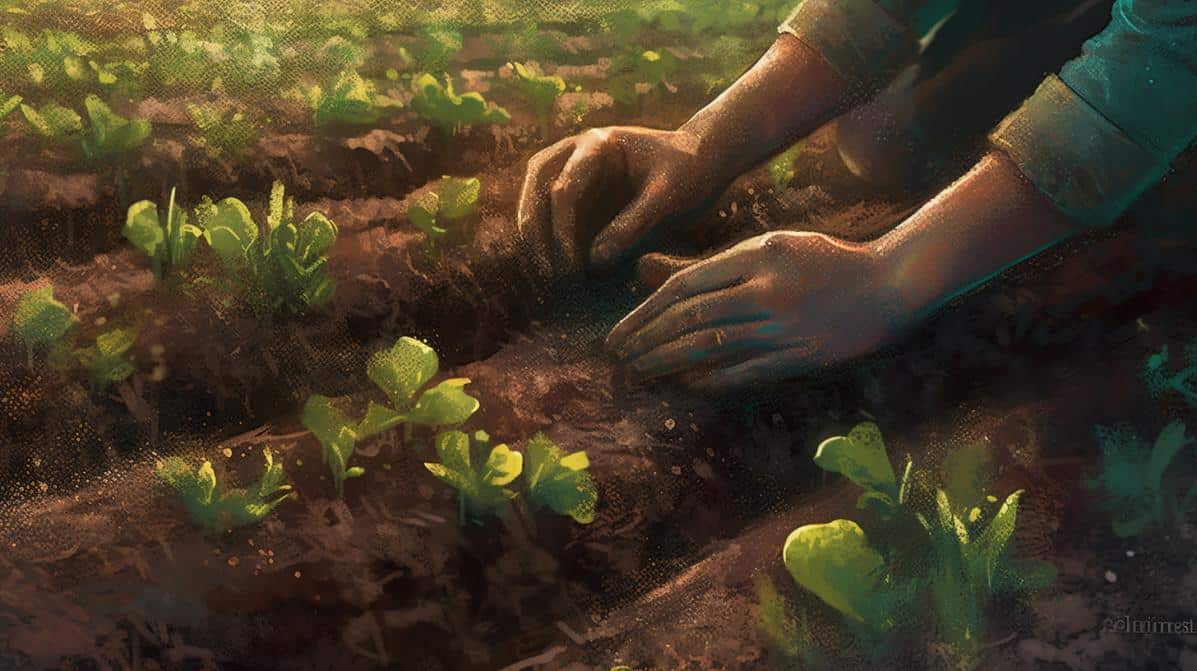As the world advances, the search for a sustainable future becomes imperative. In “Sustainable Agriculture: Paths to the Future,” we uncover the vital practices that will define the tomorrow of food production. From innovative permaculture techniques to the ancient wisdom of crop rotation, we delve into the essence of agriculture that respects the planet and feeds the population. Get ready to explore agroforestry farming systems and understand how every seed planted today is a step towards the resilience and biodiversity of tomorrow. Join us on this fertile and transformative journey!
What are the essential Sustainable Agriculture practices for a better future?
Permaculture optimizes agricultural production through strategic design that mimics nature's patterns while preserving environmental integrity. Permaculture techniques, such as the use of polycultures and nutrient recycling, promote balance and health of the ecosystem. Crop rotation is crucial as it alternates plants from different botanical families in an area over time. This enriches the soil and increases biodiversity both above and below ground. Agroforestry farming systems, in turn, integrate trees and crops or livestock, creating a diverse environment that promotes biodiversity and provides resilience in the face of climate change. Detailed information about these practices can be found in these Relevant links on permaculture practices, crop rotation and agroforestry cultivation.
How can water and soil management improve sustainability in agriculture?
Best soil management practices include crop rotation, cover planting and minimal soil disturbance, all of which promote conservation of soil nutrients and structure. Composting is essential for enriching the soil, reducing waste by recycling organic matter. Efficient irrigation systems, such as drip irrigation, are essential for saving water in agriculture, optimizing the use of essential water resources. Check out more details about techniques and studies on these subjects here.
What is the impact of Sustainable Agriculture on the economy and society?
Organic agriculture is reshaping the rural economy by prioritizing practices that reduce environmental costs and improve soil health, positively impacting the economy in the long term. It promotes fairer societies by distributing the benefits and costs of production more equally. Government incentives are essential, as they subsidize the transition to sustainable methods and support field workers in this process. For in-depth understanding, consider exploring success stories in organic agriculture and policies government that shape the scenario.
What are the challenges and opportunities when adopting sustainable agricultural practices?
Climate change poses significant challenges to traditional agriculture, exacerbating conditions of drought, flooding and soil degradation. In response, sustainable agriculture emerges as a powerful solution, offering methods that respect ecosystem balance and increase resilience to climate adversities. Examples include crop rotation techniques, use of cover crops and agroforestry systems that help retain water, improve soil fertility and strengthen biodiversity.
Certification for sustainable products is crucial in ensuring recognition and value in the market, serving as a seal of trust for consumers and a competitive differentiator for producers. This not only drives demand for sustainable products, but also helps raise awareness about the importance of responsible agricultural practices.
Finally, rural entrepreneurship plays a vital role in incorporating sustainable practices, stimulating innovation and business development focused on sustainability. The success of rural entrepreneurship contributes not only to the local economy, but also to the promotion of an agricultural model that can be scaled and adapted globally.
Delving deeper into these practices and their connections with sustainability, it is possible to see how each one strengthens the system as a whole and prepares the sector for a more promising and resilient future.
Throughout this article, we explore the essential pillars of sustainable agriculture, from permaculture and crop rotation to advanced water and soil management systems. We highlight how practices like composting and efficient irrigation can revolutionize environmental health and efficiency in the field. We also discuss the profound impact sustainability can have on the agricultural economy and building stronger, more equitable communities. Finally, we consider the challenges and opportunities that accompany the adoption of these practices, recognizing that, despite the difficulties, there is incredible potential for positive transformation in both the short and long term.
FAQ
Sustainable Agriculture for the Future
What is permaculture and how does it contribute to sustainable agriculture?
Permaculture is a method that optimizes agricultural production through strategic design based on patterns in nature. It contributes to sustainable agriculture by preserving environmental integrity and promoting ecosystem balance and health through techniques such as polycultures and nutrient recycling.
How does water and soil management promote sustainability in agriculture?
Efficient water and soil management promotes sustainability in agriculture through practices such as crop rotation, cover planting and drip irrigation. These techniques conserve nutrients, maintain soil structure and optimize the use of water resources.
What is the impact of sustainable agriculture on the economy and society?
Sustainable agriculture has a positive impact on the rural economy by prioritizing practices that reduce environmental costs and improve soil health. In society, it distributes benefits and production costs more equitably and is supported by government incentives that subsidize the transition to sustainable methods.
What are the challenges when adopting sustainable agricultural practices and how to overcome them?
Challenges in adopting sustainable agricultural practices include climate change that increases the occurrence of droughts, floods and soil degradation. To overcome them, methods such as crop rotation and agroforestry systems are implemented to increase climate resilience. Furthermore, certification of sustainable products and rural entrepreneurship are crucial to promoting and valuing sustainable practices.


